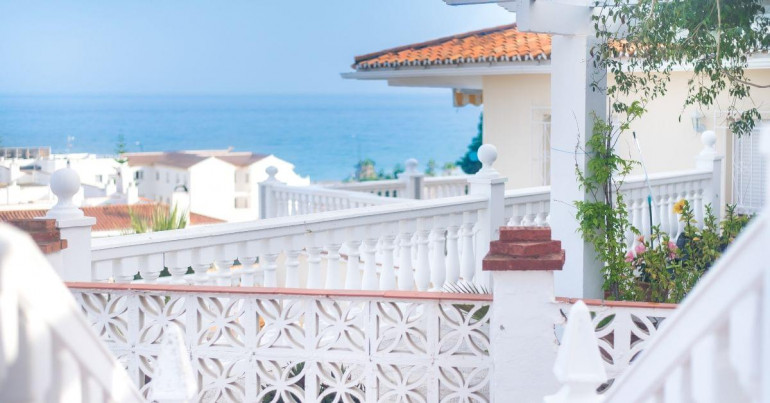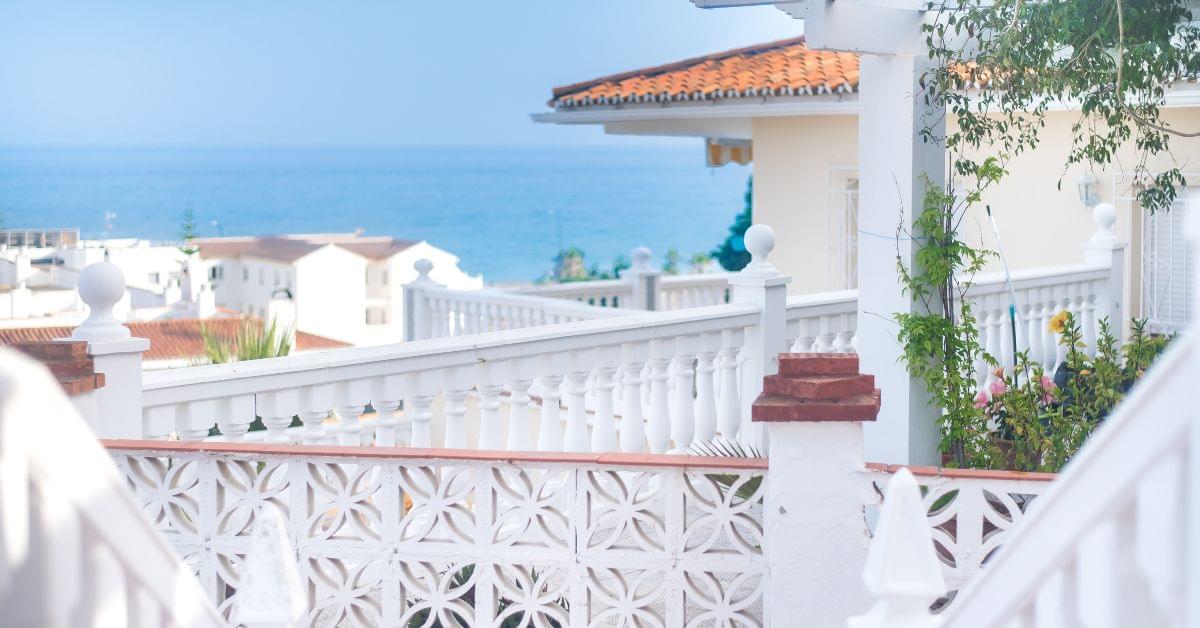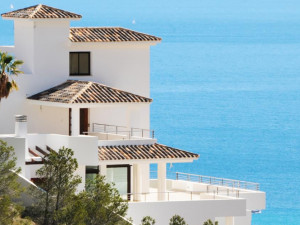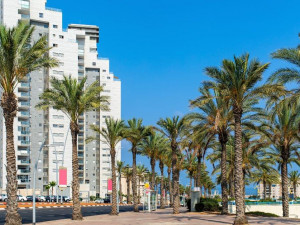
From getting your deposit together to arranging mortgages, there’s a lot to think about when you’re home hunting overseas. However, while you might be familiar with these steps from going through the same process back in the UK, there are extra hidden costs of buying a house abroad. We’ve put together our list of the top expenses to budget for, so you can go into your move safe in the knowledge that you’ve covered all the necessary steps.

1. Notary fees
First up on our list is a figure we don’t often come across in the UK: the notary. The notary is a representative of the state who authenticates and authorises different elements of the process of buying in many continental European countries, including France, Spain, Portugal and Italy.
As they’re not so present in the British system, their fees are a bit of a hidden cost of buying abroad for many of us, but it’s one that a lot are happy to pay. In many ways their service makes the process much safer: they are a neutral third party who ensures deeds are deposited correctly, contracts are drawn up as they should be and so on. Sometimes they will also perform a certain level of property searches.
So what should you expect from their fees?
French notaries collect both their own fees and taxes for the state. Their own fees go on a sliding scale based on the value of the property, with most people paying 0.799% for a home valued over €60,000. They also collect the ‘taxe de publicité foncière’, which is around 5.81% for a resale property and 0.71% for a new one, and a further 0.10% for the ‘contribution de sécurité immobilière’.
In Portugal, you’re looking at a fixed fee of €153 for the transaction and a further 0.75-1% of the property’s cadastral value for deed registration.
Spanish notarial fees are technically set by the government, but do vary because of the need for different services based on individual properties. Typically, expect to pay around €600-875 for the notary’s fees and a further €400-700 to have it inscribed in the Land Registry.
Buyers in Italy will pay roughly the equivalent of 2% of the property value for a first home and 9% for a second home, with the possibility for higher notarial fees in more expensive areas.
2. Exchange rate volatility
If you’ve been following our blog, this won’t be a hidden cost of buying abroad for you, but it’s worth reiterating as it can be either the biggest surprise or the biggest saving you make in your purchase.
If you’re based in the UK and buying abroad, you’re buying in a foreign currency – we’ll use euros as an example – and probably have your own funds currently in pound sterling.
When you offer on a property, you’ll highly likely offer in euros, having calculated the exchange rate to know what you can get for your pounds. So far, so good, but the time to completion can take multiple months. In those months, the currency markets will move unpredictably. This could be due to almost anything: a major change in policy or economic statistics, or just mere speculation about an upcoming interest rate announcement or election result.
For example: in June 2022, a €250,000 house would have cost you £209,250. Fast-forward to completion in November 2022 and you would have needed to pay £215,145.
This is a hugely volatile cost for buyers to contend with, but there is help at hand. Many buyers choose to lock in an exchange rate with what is known as a forward contract, whereby they agree with their broker to fix a particular day’s rate for a particular period. This means you can buy knowing exactly how much you’ll pay in multiple months’ time.
3. Income requirements for residency visas
Buying a property after Brexit in Europe is still very much possible, but moving to it full-time means you’ll usually need a visa. Fortunately, most of our European neighbours offer residency visas based on foreign income (including pensions). The important thing is to make sure you’re aware of this hidden cost of buying abroad and budget for it on an annual, ongoing basis.
There are so many visas out there that we couldn’t cover them all, but if we look at the popular category of passive income, you can expect the following:
The Portuguese authorities expect you to receive the equivalent of the local minimum wage, which has just gone up to €760 a month in 2023. With a full basic state pension in the UK being at around £802 a month, most Brits should easily qualify.
In France, the D7 visa system isn’t in force, but if you enter under a long-stay visa and apply for a residency card for a retiree, the fee is a simple €25, but you need to prove the presence of a pension. In most cases, this should be possible with a pension statement or company letter.
Spain is a lot higher in its requirements than Portugal, but still affordable. The calculation is based on the “Public Multiple Effects Indicator”, which changes every year (so be prepared for potential small rises). The sum itself is 400% of the indicator, which currently gives us €28,800 per annum or around €2,400 a month.
Meanwhile, over in Italy, the elective residency visa is officially gazetted as only requiring “ample economic resources”. Some legal firms suggest an income of €32,000 per year will be satisfactory for most applications. Italy doesn’t have a set minimum wage, so there’s no simple red line here.
Setting your realistic property budget
If you want a stress-free purchase, calculating these hidden costs of buying abroad along with your usual taxes and deposit is crucial. Make sure to take advantage of all our insight into the whole process, from getting an overseas mortgage to how inflation could impact your payments. Armed with expert knowledge, you’ll be in the best possible position to make that move!
Alexander Fordham
Alexander is a writer specialising in foreign exchange and overseas property, with seven years’ experience helping people to purchase abroad and send money safely, including hosting seminars on the topics around the UK. You can find him out hiking, travelling and working from Spain in the sunnier months.



